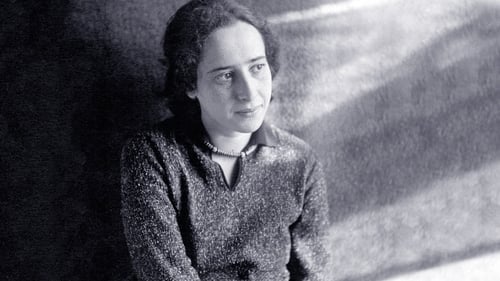
Director
There are children, too, among the Palestinian insurgents. For some time now, the Israeli side has observed minors who take an active part in an Intifada, especially with knives. They are harshly dealt with: prison, hardly any judiciary support. Ada Ushpiz, filmmaker and journalist, comes surprisingly close to some of the Palestinian families concerned. She has accompanied the dubious insurgents over several years and witnessed terrible pressure.

Producer
A vida e obra da filósofa política alemã de ascendência judaica Hannah Arendt (1906-75), que causou um alvoroço quando cunhou um conceito subversivo, a banalidade do mal, em seu livro de 1963 sobre o julgamento do criminoso de guerra nazista Adolph Eichmann (1906-62), realizado em Israel em 1961, que ela cobriu para a revista New Yorker.

Writer
A vida e obra da filósofa política alemã de ascendência judaica Hannah Arendt (1906-75), que causou um alvoroço quando cunhou um conceito subversivo, a banalidade do mal, em seu livro de 1963 sobre o julgamento do criminoso de guerra nazista Adolph Eichmann (1906-62), realizado em Israel em 1961, que ela cobriu para a revista New Yorker.

Director
A vida e obra da filósofa política alemã de ascendência judaica Hannah Arendt (1906-75), que causou um alvoroço quando cunhou um conceito subversivo, a banalidade do mal, em seu livro de 1963 sobre o julgamento do criminoso de guerra nazista Adolph Eichmann (1906-62), realizado em Israel em 1961, que ela cobriu para a revista New Yorker.

Director
This is the story of three Bedouin women, struggling within a polygamous system. Living in the Negev desert in Israel, the story is told through the eyes of a wedding photographer, Mariam Al-Quader. She herself is living under constant fear that her husband will marry "over her" (the expression used when a man chooses an additional wife). The other two women are pushed into marrying already married men, and become "second wives", forced to cooperate within a structure they despise or are afraid of. \par \par \par The family tragedies presented in this film highlight the strength and survival of the social structures and their injustices, leaning usually on the victims' reluctant cooperation. This is most exemplified by the climax of a Bedouin wedding, wherein the groom showers upon his bride gold and jewelry in a gesture symbolizing her purchase.

Director
Najwa, Nawal and Siham, three Palestinian widows, live with their 11 children in a house on Shuhada Street in Hebron. Their house lies on the border; the façade is under Israeli occupation, the Palestinian authority controls the back. At the entrance to the house a military post, on the roof the Israeli army has placed a watch point over Palestinian Hebron. Three women, trapped in the middle, constantly surrounded by Israeli soldiers, carry on their difficult lives in a perverse situation: the occupation becomes a routine, the absurd becomes a given. This is the story of an occupation that extends to the staircase and the roof of the house, where it encounters poverty, loneliness, pain, but also the small joys of everyday life. This is an internal prison, the external one is the ongoing occupation.





